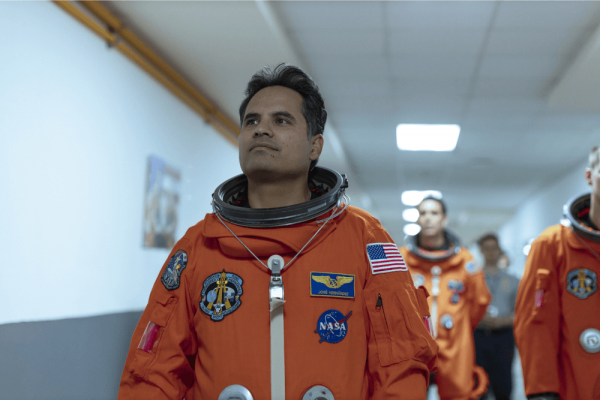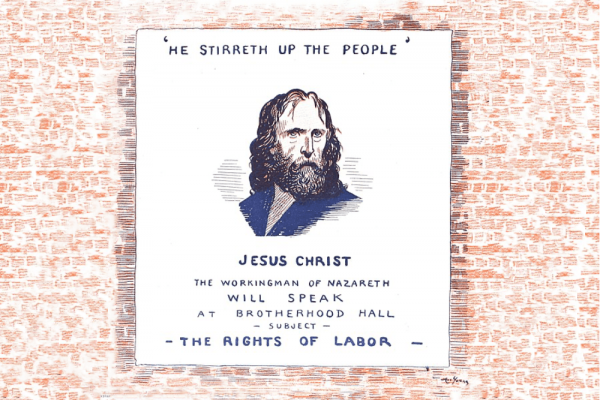Lab-grown meat can be labeled kosher and halal as long as its cells are derived in methods compliant with religious standards, according to two panels of experts commissioned by the nascent industry.
As more people leave religious institutions, or never join them in the first place, it’s easy to assume this demographic will command more influence. But as a sociologist who studies politics and religion, I wanted to know whether there was evidence that this religious change could actually make a strong political impact.
There are reasons to be skeptical of unaffiliated Americans’ power at the ballot box. Religious institutions have long been key for mobilizing voters, both on the left and the right. Religiously unaffiliated people tend to be younger, and younger people tend to vote less often. What’s more, exit polls from recent elections show the religiously unaffiliated may be a smaller percentage of voters than of the general population.
A Million Miles Away feels like a story too good to be true. But the new film is the true story of José Hernandéz (Michael Peña), a migrant farmworker who became a NASA astronaut.
Yet a common assumption is that chaplains themselves must be grounded in a religious tradition. After all, how can you be a religious leader without religion?
In reality, a growing number of chaplains are nonreligious: people who identify as atheist, agnostic, humanist, or “spiritual but not religious.” I am a sociologist and research manager at Brandeis University’s Chaplaincy Innovation Lab, where our team researches and supports chaplains of all faiths, including those from nonreligious backgrounds. Our current research has focused on learning from 21 nonreligious chaplains about their experiences.
Ukraine’s Eastern Rite Catholic bishops bluntly told Pope Francis at a meeting on Wednesday that some of his comments about Russia had caused great pain and were being used by Moscow to justify a “a murderous ideology.”
In July, Ryan Burge, an associate professor of political science at Eastern Illinois University and an ordained minister in the American Baptist Church, made a case on his Substack that, with the exception of the rise of those who identify as non-religious or “nones,” the most important trend in American religiosity is the rise of nondenominational churches. For those who are actively engaged in denominational life, the numbers are staggering.
When taken together, those attending nondenominational churches now make up the second largest religious group in the United States after Roman Catholics. Rising from a mere 5 percent of the U.S. religious landscape in 1984, nondenominational adherents are now estimated to represent an astonishing 22 percent.
For me, this faith has always been rooted in Jesus’ lived example of how we are to be unapologetic in our support for each other. And when Jesus says, “love thy neighbor as thyself,” I imagined this meant, well, help thy neighbor, assist thy neighbor, care for thy neighbor, nurture thy neighbor — all without condition or justification, just as Jesus did. But since then, I’ve learned a serious lesson about the limitations of the Christian imagination in politics. Despite our shared faith, many lawmakers in this country don’t seem to envision a country where we actually put these values into practice. My latest disappointment? Millions of people losing Medicaid coverage — our nation’s primary public health system that provides health care and support for folks with low income and/or disabilities — because states refuse to do the right thing.
The arrival of a child into a religious community usually sets off a flurry of activity. Someone usually organizes a meal delivery. A pastor might visit the hospital. Older parents often reach out with words of advice to the younger, sleep-deprived new parents. But when that child is born with a severe or chronic medical condition, families need more than the church can give, said Matt Steinhauer, a retired minister with the Evangelical Lutheran Church in America, former insurance broker, and the parent of a son with Down syndrome.
Two years ago, I spoke to one young woman with obsessive-compulsive disorder as part of my research into discipleship and depression. After this woman had received her diagnosis, some well-meaning but ill-informed members of her church instructed her to pray and read the Bible more. Because of their advice, she said, “I was always wrestling with whether it was spiritual warfare.” This spiritualization exacerbated her mental health struggles, adding on a religious component to her symptoms, including compulsive prayers and other spiritual practices to gain God’s favor and find healing. When it comes to accompanying young people through mental health challenges, I know the church can do better.
According to a recent Gallup poll, labor unions are enjoying their highest levels of national national support since 1965. One major reason for renewed labor organizing is the COVID-19 pandemic, as workers started to ask whether a new future for work was possible in the midst of the pandemic. Some of the demands that laborers were making then are still being made now: increased pay, safer working conditions, and flexible schedules. In the U.S., the federal minimum wage is still a paltry $7.25 per hour. Federal minimum wage has not increased since July 2009 but if it had been keeping up with inflation, it would be over $21 an hour today.
What would Jesus have to say about America’s hot labor summer specifically, and the renewed organized labor movement more generally speaking?









